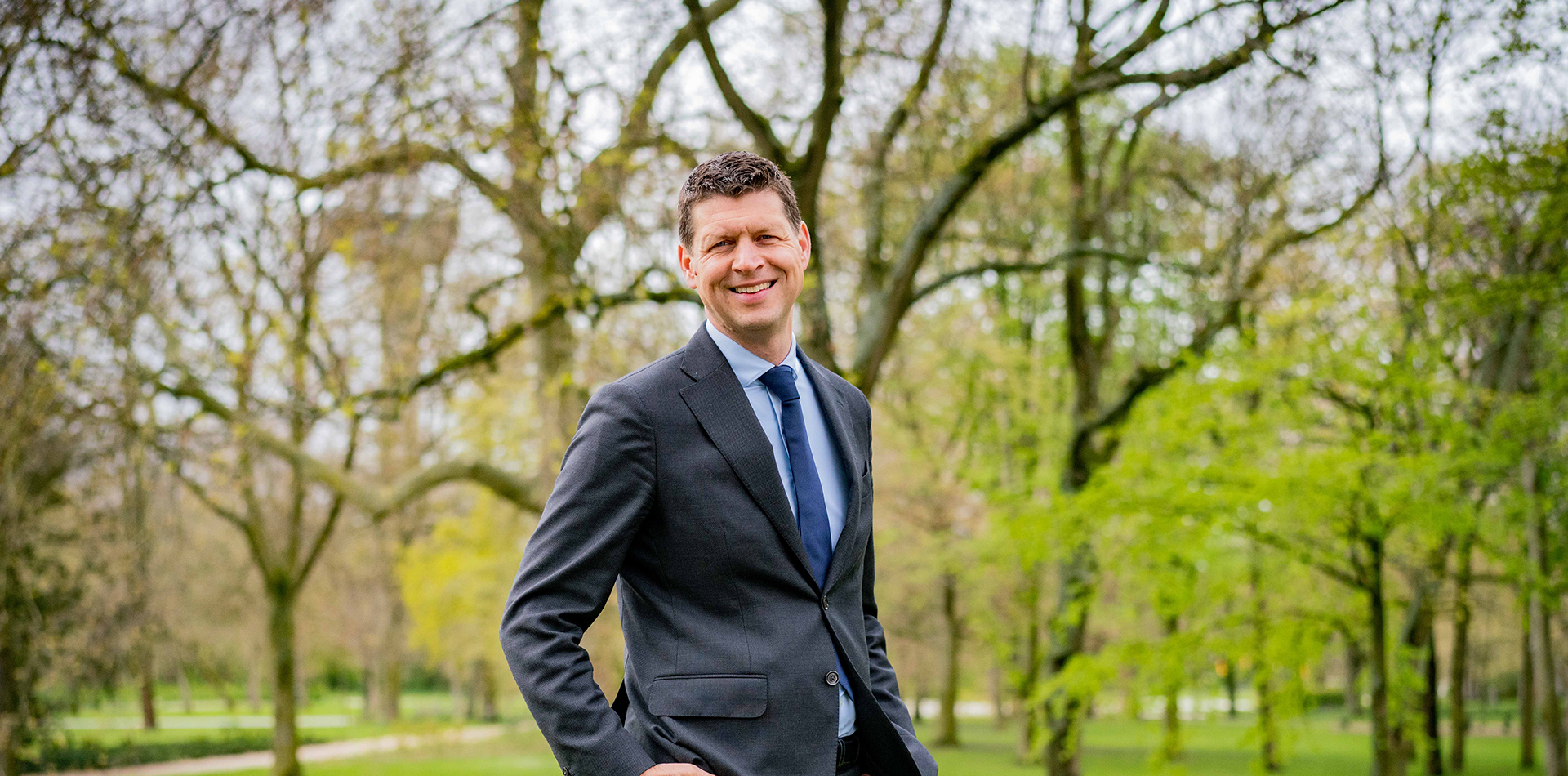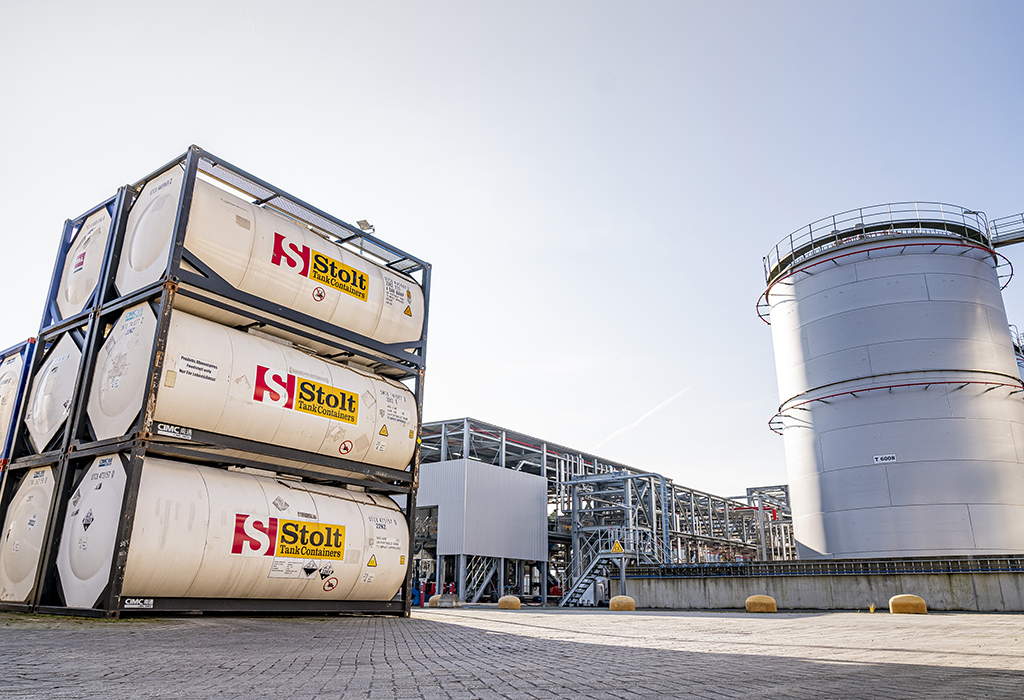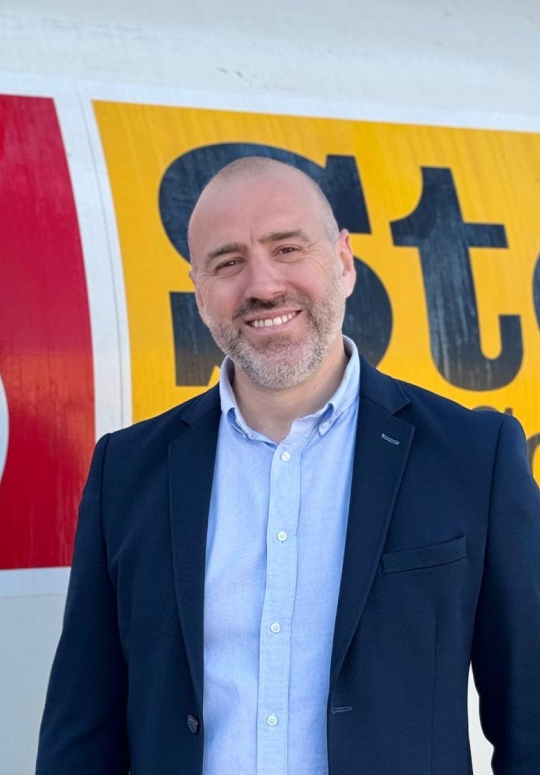Hans Augusteijn, President of market leader Stolt Tank Containers, talks to Tankcontainer Magazine about sustainability, strategy and a strong team.
HA: I knew that STC was a market leader with a very knowledgeable team. What I was surprised about was the great feedback we received from our customers working with the team in STC. Last year - when I joined STC - we had the most unusual time when it comes to moving our tank containers, yet despite bottlenecks and congestion in the supply chain I was amazed at how well the team worked together with customers to keep the cargo moving. When I visit customers across the globe, this is the overwhelming feedback I get, that we are able to consistently deliver a reliable product with a very personal touch. That strong teamwork, and the great culture in STC, has been my biggest surprise.
TCM: What is STC’s strategy?
HA: Our strategy is to build on our strengths - we have a global team and presence and a tank container fleet that suits our customer needs. We believe that with that team and reach we can continue to work on what our customers tell us they would like:
1. To work closer with them. As we have seen that supply chains are very volatile, many of our customers are looking for a partner that can work closely with them and stick with them. We have been around for 40 years and with that experience we believe we can also long term work closely with our customers to give them more predictability in their logistics;
2. We are working hard on digitising our customer experience - as with any industry, logistics is changing quickly. That means that our customers expect in one click to be able to book a tank container, have an accurate prediction of when their cargo arrives and find a quote online. We will also continue to integrate our systems with those of our customers;
3. Lastly, our customer want to know that they can move their cargo efficiently, reliably but also sustainably - so we will continue to give them that insight on how we minimise the impact on the environment as we move, heat and clean tank containers for them.
TCM: What are the key trends in the tank container market?
HA: The key trends in the tank container market are very much around having a reliable offering for the customer, digitising the business and focusing on sustainability. Aside from that, I think there is a bright future for the market. If you look at the efficiency that tank containers have versus other modes of transporting liquids, I think there is a lot of potential for conversion from bottles, drums, flexibags and small parcels to tank containers. It is clear that compared with other modes the ISO tank container enables more efficient and sustainable transport. As part of the wider Stolt-Nielsen group we work across different modes of transportation and storage for liquids and I see a bright future for the tank container in this.
TCM: What has been the lasting impact of coronavirus on the tank container market?
HA: It is clear that the coronavirus pandemic made our customers even more concerned about reliability and a stable supply chain. It also shows that partnerships are absolutely key in working together in the supply chain. As a result, we have seen that we now work even closer with our customers, our partners and vendors than we did before the crisis.
Secondly, it shows that without digital it is really difficult to manage your supply chain. I think the trend to develop better track-and-trace capabilities online, and more supplier and customer integration on the digital side, will continue and is a result of the pandemic and the supply chaos last year. I am very proud that during the pandemic we did not miss a beat when serving our customers. Yes, we experienced congestion and delays but we have not had a customer stop their plant or run out of feedstock,something that we saw frequently elsewhere. That is a huge tribute to the team!
TCM: How does STC measure sustainability?
HA: Sustainability is very much about discussing the subject with our customers and partners in the supply chain. Our customers look at a variety of Environmental, Social and Governance (ESG) elements, but clearly Scope 3 emissions are high on their agenda. Being able to measure and act on those emissions - and seeking better alternatives with customers and our partners - is the key to making a meaningful impact to lower Scope 3 emissions. The bulk of these emissions come from the trucks and vessels we use together with partners and until alternative fuels are available at scale we need to optimise and seek the most carbon efficient way to move each tank container.
TCM: Why is owning a depot network important?
HA: It allows us to offer a full end-to-end service to our customers and, at the same time, we can safeguard the quality and our high standards when it comes to safety and sustainability. Our depots in China and Mumbai are a perfect example of this.
Recently, the Zhangjiagang depot in China celebrated Depot Safety Day and celebrated an amazing milestone: 2,500 days without reported incidents, a fantastic achievement! To put that into perspective, that’s nearly seven years without reported incidents. At STC, our greatest priority is ensuring the safety of our people and the environment and we are progressing to reach our goal of zero incidents both on the road as well as across our depots.
Zhangjiagang depot is our largest Asian depot with heating, storage, cleaning and repair activities taking place and our colleagues there do great work on sustainability by refurbishing over 700 tank containers a year. With colleagues constantly handling heavy tanks and specialised machinery, it’s important that every one of us understands our responsibilities for ensuring a safe work environment for ourselves and for our colleagues.
On 18 May 2023, the SPS Mumbai depot in India became Stolt Tank Containers’ first facility to adopt full solar energy. The depot’s tropical location, which benefits from 9-10 months of sunshine a year, presented a perfect opportunity to go greener via this renewable resource. This switch is expected to make the depot electricity-neutral.
Mono PERC solar panels covering the depot’s roof are capable of generating 170 kWp (kilowatt ‘peak’ power output), which is converted into Alternating Current using two Growatt inverters. This is enough to fully power every piece of depot equipment at any given moment. Given that it is rare for all equipment to be in use at the same time, the installation generates more power than the depot uses and the excess is fed back into the local grid. A government-installed bi-directional meter measures both this and the amount drawn from the grid at times when solar generation is not sufficient.
Now that SPS Mumbai has largely switched from drawing from the grid to contributing to it, the surrounding community benefits from more reliable electricity supply. At the same time, Stolt Tank Containers has reduced its dependency on coal-fired electricity, reducing carbon
emissions by around 10-15 tonnes per month. And this is just the start. A similar installation at the Kandla depot is due for completion in 2024.







